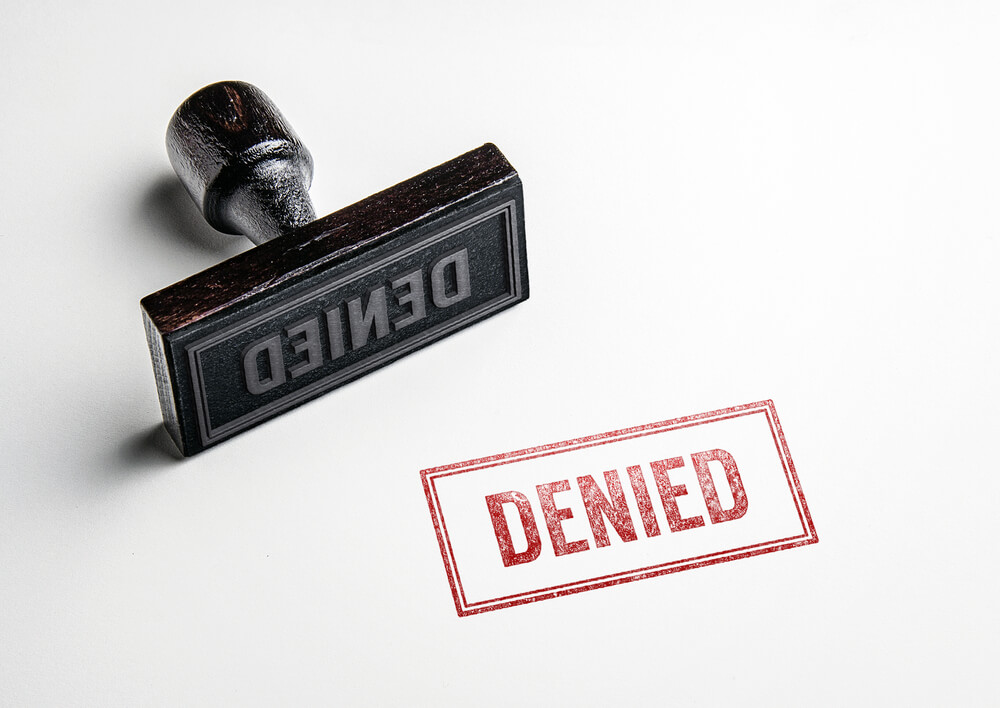Imagine being arrested and denied bail. Suddenly, the legal process feels overwhelming, leaving you confused and unsure of what comes next. Why was bail denied? How long will you be stuck in jail? We get to the heart of these critical questions and empower you with the knowledge you’ll need for the complexities of bail and pretrial detention. Here are 10 reasons why you might get denied bail in Texas.
10 Reasons Bail May Be Denied
While the presumption of innocence exists, various factors can influence a judge’s decision to deny bail. Understanding these reasons is crucial, as they reveal potential concerns the court might have and areas you can address with your legal representation.
1. Flight Risk
The judge believes the defendant might flee the jurisdiction to avoid trial. This could be due to weak ties to the community, lack of substantial employment, or access to resources for escape.
2. Danger to the Community
The judge denied bail because he or she has reason to believe the defendant poses a threat to the public if released. This can stem from the nature of the alleged crime, past violent offenses, or threats made to individuals.
3. Witness Tampering
If there’s concern the defendant might intimidate or harm witnesses to impede the investigation or trial, bail may be denied.
4. Repeat Offender
A history of failing to appear in court or committing similar offenses can lead to bail denial, raising concerns about future compliance.
5. Seriousness of the Charge
For severe crimes with harsher potential punishments, judges are more likely to deny bail to ensure the defendant’s presence for trial.
6. Lack of Evidence for Release
If the prosecution presents a strong case and evidence against the defendant, bail might be denied as they pose a flight risk or threat.
7. Mental Health Concerns
In rare cases, if the defendant’s mental state raises concerns about public safety or their ability to participate in court proceedings, and gets denied bail.
8. Immigration Status
Non-citizens, especially undocumented immigrants, might face bail denial due to concerns about flight risk or difficulty enforcing court orders. Keep in mind that immigration bail bonds are still possible. So, don’t let immigration status make you feel completely helpless in your situation.
9. Financial Resources
While not a sole factor, limited financial means can sometimes influence bail decisions, raising concerns about ability to secure bonds.
10. Procedural Violations
Breaching pre-trial release conditions or prior misconduct during previous releases can lead to bail denial in subsequent cases.
Stuck in Jail Without Bail
Unfortunately, there’s no simple answer to how long someone stays in jail when denied bail. It depends on several complex factors, including:
1. Severity of Charges
More serious charges typically come with higher bail amounts, increasing the likelihood a defendant won’t be able to afford it. So, people facing lesser charges are more likely to be released sooner, even without bail.
2. Court Backlog and Scheduling
The wait for trial can vary greatly depending on court congestion and individual case complexities. This can extend someone’s detention without bail for weeks or even months.
3. Affording Bail
If someone can’t afford bail, they remain incarcerated until their hearing or trial, regardless of the charge severity. This highlights the economic disparities within the justice system.
4. Plea Bargains
If a defendant accepts a plea bargain, their time in jail without bail might be significantly reduced compared to going to trial, which can further extend their detention.
5. Speedy Trial
The Sixth Amendment guarantees the right to a speedy trial, but defining “speedy” is subjective and open to interpretation. This can create situations where defendants wait extended periods without resolution, even if they can’t afford bail.
6. Pretrial Release
Some jurisdictions offer alternative release programs like supervised release or electronic monitoring as bail alternatives. If eligible and approved, these programs can shorten the time in jail without bail.
7. Local Laws
Bail and pretrial detention laws vary widely across states and even within them. This means the amount of time someone can spend in jail without bail can differ significantly depending on their location.
Get Out of Jail Faster
Facing denied bail and/or extended jail time without bail can feel incredibly isolating and stressful. However, you don’t have to navigate this alone.
1st Call Bail Bonds in Dallas, Texas, is here to help you understand your options, explore alternatives, and work tirelessly to secure your release as quickly as possible.
Our Dallas bondsmen offer:
- 24/7 availability: We’re always here to answer your questions and guide you through the process.
- Experienced, compassionate staff: Our team understands the complexities of the legal system and will treat you with dignity and respect.
- Flexible payment plans: We work with you to find an affordable solution that fits your budget.
- Extensive resource network: We’re connected with legal professionals and community organizations who can provide additional support.
Don’t waste another minute in jail! Contact 1st Call Bail Bonds today, and let us help you get back to your life.




